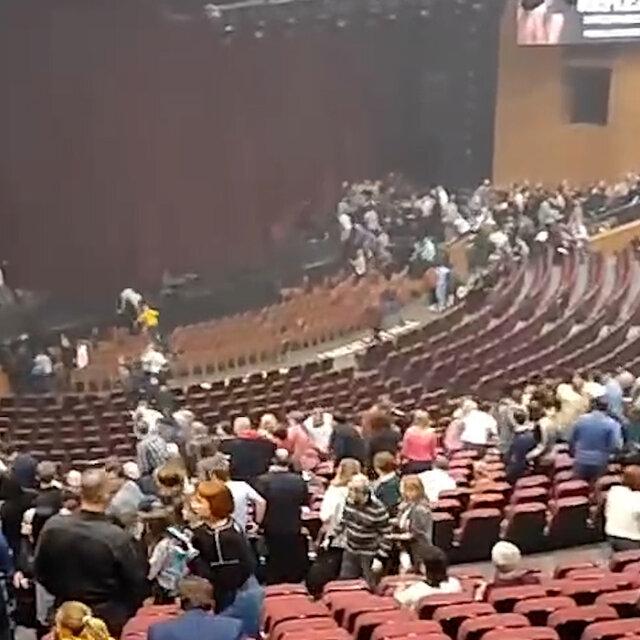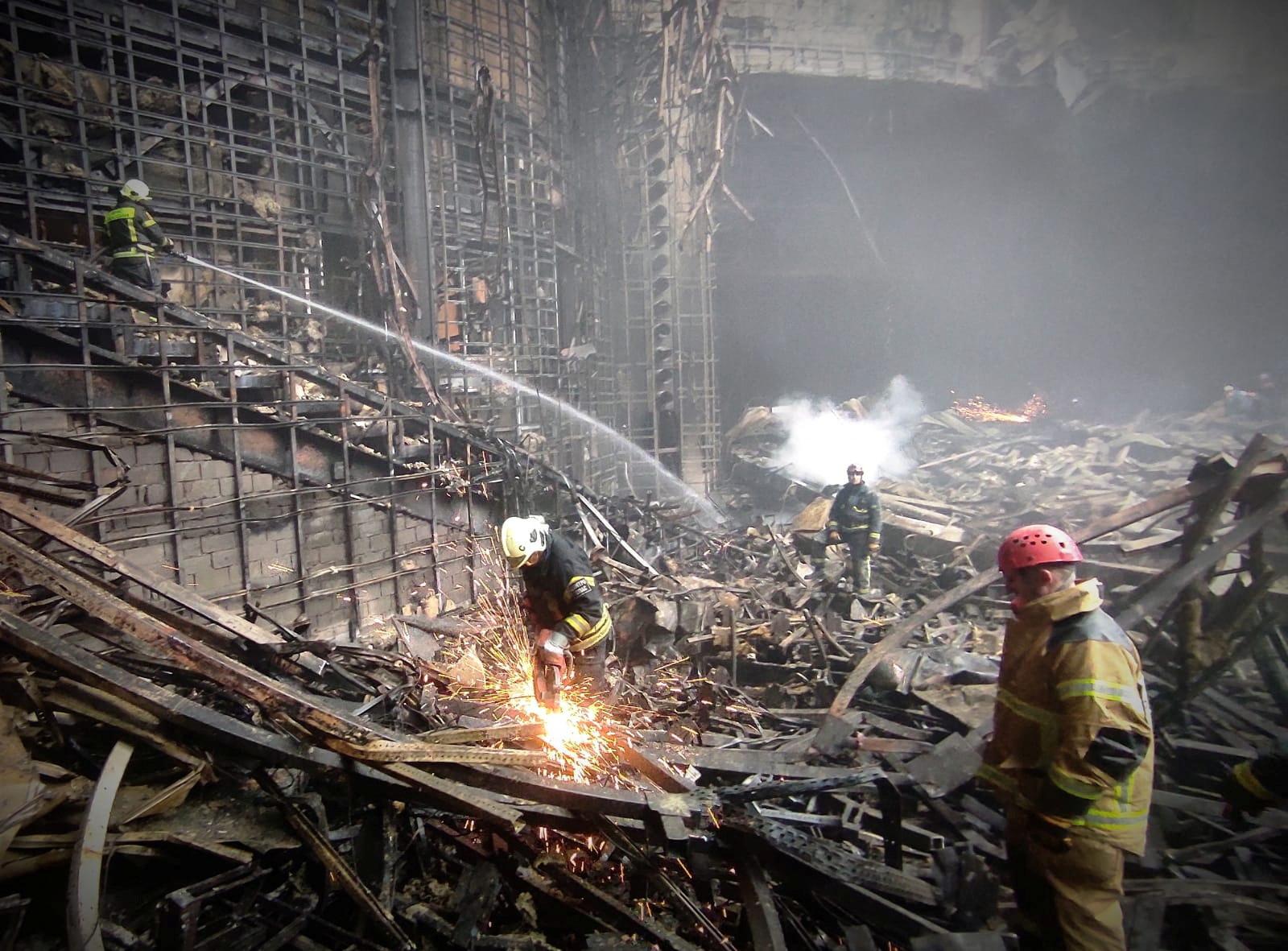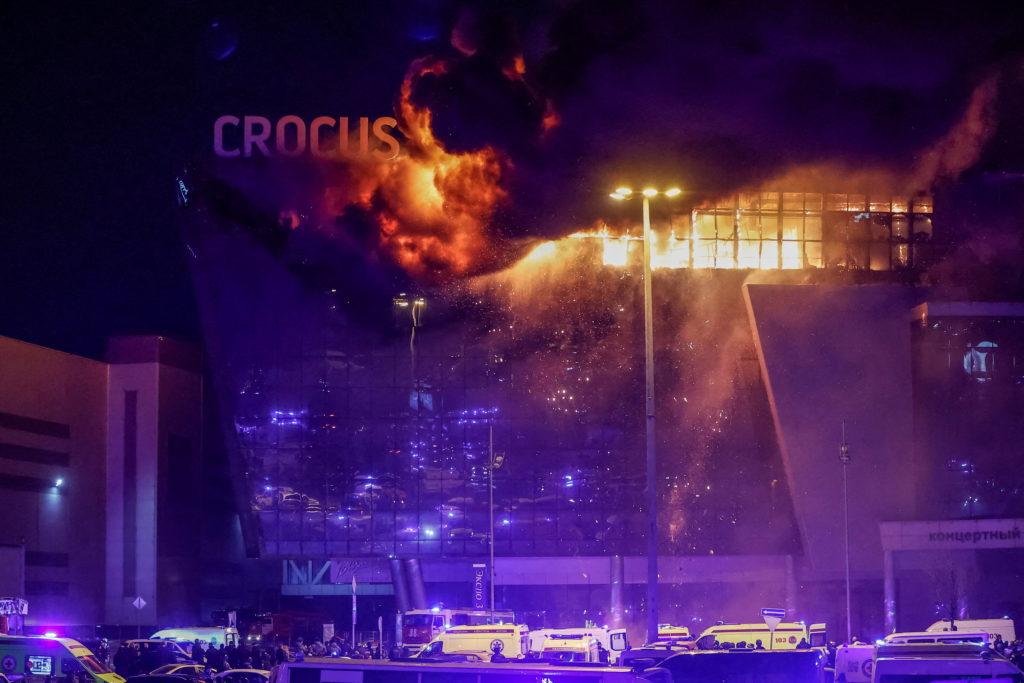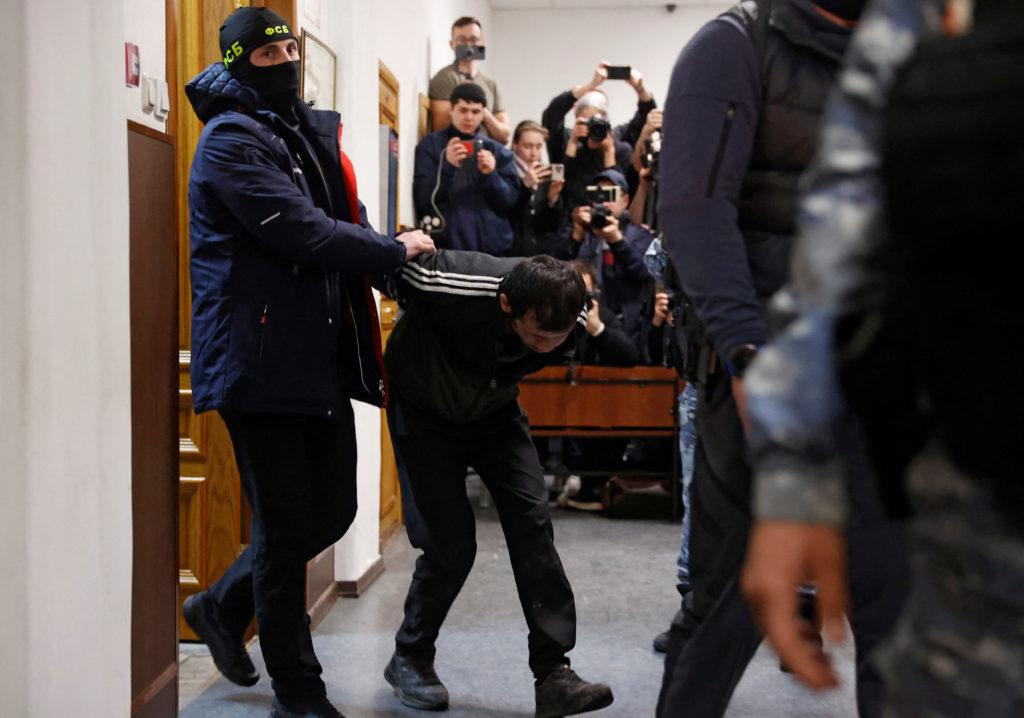Trial Proceedings Unfold for Defendants in Moscow concert Hall Massacre
The trial proceedings for those implicated in the devastating attack on a Moscow concert hall in early 2024 commenced this week amid heightened security and intense public interest. The courtroom was filled with survivors, families of victims, and various media outlets keen to witness the legal response to one of Russia’s deadliest mass killings in recent history. The defendants, facing multiple charges including terrorism and murder, are accused of orchestrating the assault during a crowded event that resulted in the tragic loss of 149 lives.
Key figures in the prosecution outlined a harrowing narrative that detailed the planning and execution of the attack. According to prosecutors, the alleged assailants are part of a larger extremist group that aimed to incite fear and chaos. Evidence presented in the opening statements includes:
- Surveillance footage capturing the moments leading up to the attack
- Communications between the defendants that suggest premeditation
- Eyewitness testimonies recounting the horrific events
Defense attorneys, however, have disputed the validity of the evidence, arguing that it does not conclusively link their clients to the incident. as the trial unfolds, both sides are expected to delve deeper into the complex web of motives and affiliations that led to the tragedy, as the nation grapples with the implications of this heinous act.

Survivors’ Voices: The human Toll and Ongoing Trauma from the Attack
The harrowing echoes of the 2024 concert hall attack resonate far beyond the immediate tragedy, carving deep scars in the lives of survivors and their families. Those who witnessed the unfolding horror share a collective wound, each testimony revealing layers of grief, fear, and resilience. Survivors describe the chaos of that fateful night, where jubilant anticipation turned into paralyzing panic. Many recount how their loved ones were lost in an instant,leaving them grappling with unanswered questions and the weight of survivor’s guilt. The emotional aftermath is profound, as they navigate the complexities of healing while dealing with persistent nightmares and anxiety that linger long after the lights dimmed and the music faded.
Despite the ongoing trauma, the courage of these individuals shines through as they strive to reclaim their lives. Community support groups have emerged, offering a sanctuary for shared experiences and collective healing.Survivors advocate for more robust measures to protect public spaces, emphasizing the need for vigilance and preparedness to prevent future tragedies. Their voices resonate as a powerful reminder of the human cost of violence, urging society to confront the underlying social issues that give rise to such acts. Through storytelling and advocacy, they are not just reclaiming their narrative but are also fostering a culture of resilience that honors those lost and calls for a safer future.

Security Oversight: Lessons Learned from the 2024 Tragedy and Future Safeguards
The recent tragedy at the concert hall in Moscow, which claimed 149 innocent lives, has brought security measures into sharp focus. As investigators piece together the chaotic aftermath, certain lapses have emerged that demand attention. The review of security protocols reveals significant oversights, particularly in areas such as:
- event Surveillance: Inadequate monitoring technologies failed to detect suspicious activities leading up to the event.
- Crowd Control Strategies: Poorly coordinated evacuation plans amplified the chaos during the attack, complicating rescue efforts.
- threat Assessment Training: Security personnel lacked complete training on recognizing and responding to potential threats in real-time.
These findings stress the urgent necessity for improved safeguarding against future incidents. Law enforcement and event organizers must collaborate to implement more robust security frameworks that prioritize:
- Advanced surveillance Systems: Investing in modern technology that ensures real-time monitoring can significantly enhance threat detection.
- comprehensive Emergency Protocols: Developing clear, practiced evacuation plans that involve all personnel will streamline responses in crisis situations.
- Regular Training Programs: Ongoing education for security staff on the latest threat identification methods is essential to adapt to evolving risks.

Legal and Ethical Implications: The Role of Justice in Healing a Nation
The horrific events surrounding the 2024 concert hall attack in Moscow have reignited discussions about the legal and ethical responsibilities that accompany the pursuit of justice in the aftermath of such tragedies. As the trial commences for those accused of this heinous act,the judicial system faces intense scrutiny regarding its capacity to heal a nation grappling with profound grief and trauma. Legal experts emphasize the importance of adhering to principles such as due process, fairness, and openness, which are paramount in maintaining public confidence in the system. This trial not only serves to hold the perpetrators accountable but also plays a crucial role in addressing the societal need for justice, which in turn can facilitate communal healing.
Furthermore, the ethical implications extend beyond the courtroom. They challenge the very fabric of societal values and the collective consciousness of a grieving populace. The prosecution must balance the need for retribution against the overarching goals of rehabilitation and restorative justice.In engaging the community through open dialogues, support for the victims’ families, and educational initiatives on violence prevention, the judiciary has the potential to transform the narrative from one of retribution to a collective commitment to peace and resilience. Addressing these legal and ethical challenges with sensitivity is essential,not just for the immediate victims,but for the nation as it seeks to rebuild and move forward in unity.
